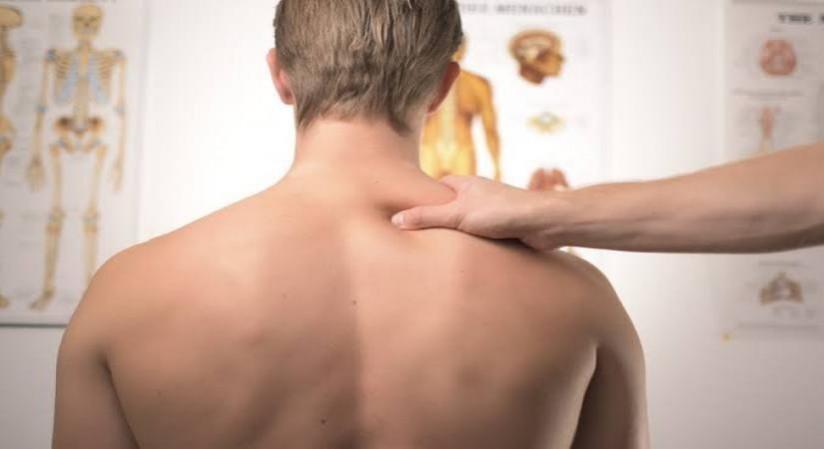Noting that the prevalence of spine problems has increased manifold during the COVID-19 lockdown, a senior Delhi-based doctor says that looking at the increasing number of spine-related cases, it would not be an overstatement to say that there is a silent epidemic building up.
The associated factor is the forced sedentary lifestyle, and prolonged sitting, lack of exercise and poor activity. Poor understanding of spine ergonomics leads to improper posturing and is also contributory, explains Dr Samir K Kalra, Consultant, Department of Neurosurgery, Sir Ganga Ram Hospital.
"Spine related consultations have increased and the reason is primarily sedentary lifestyle that has been forced upon us by the disease. There has been a significant change in daily routine activities in almost everyone's lifestyle in this lockdown period. Backache is considered amongst most common occupational disorders leading to work related absenteeism. Neck pain is equally distressing and appalling. They cause a huge economic burden and could become a major constraint in our already weakened economy" Dr Kalra told IANSlife.

Asked which demographic is most at risk, the doctor points to the elderly among the subsets of people who have been affected more in this period.
"The fact that they already have compromised and weak spinal musculatures along with forced inactivity leading to increased spinal load. The main support for the spine comes from the muscles and it is important to keep them supple and strong. It is difficult for the elderly to do so."
Another subset is professionals working from home, the doctor explains. Working from home and on laptops for long periods has resulted in lot of back and neck related issues. This includes not only professionals but also teachers and students who suddenly have been forced to sit for hours and work on screens, he said.
"The women of the house are another subset affected due to the additional house work due to lack of domestic help. This coupled with additional stress and anxiety due to the COVID pandemic which is common to all affected people causes a compounding effect."
Preventive tips
All hope is not lost, however and the issues can be managed, he says.
- One has to understand that spine mechanics are different for each individual. While there are certain common preventive ways, each person has to understand and make their own adjustments. This would include individualised height adjustments for everyone during sitting and ambulation based on height, weight, spine length, limb length and neck angulations. This is easily done and can be preventive of a major morbid situation.
- Periodic breaks and stretches also are required to reduce spinal strain.
- Attention to posture while sleeping is also important essentially including the correct pillows and mattresses. The spine is a complex system with a limited shelf life, and only by good care we can keep it healthy and functioning.
- It is not the amount of work or the load it bears which causes wear and tear but more so the work done in the wrong positions which leads to damage.
















